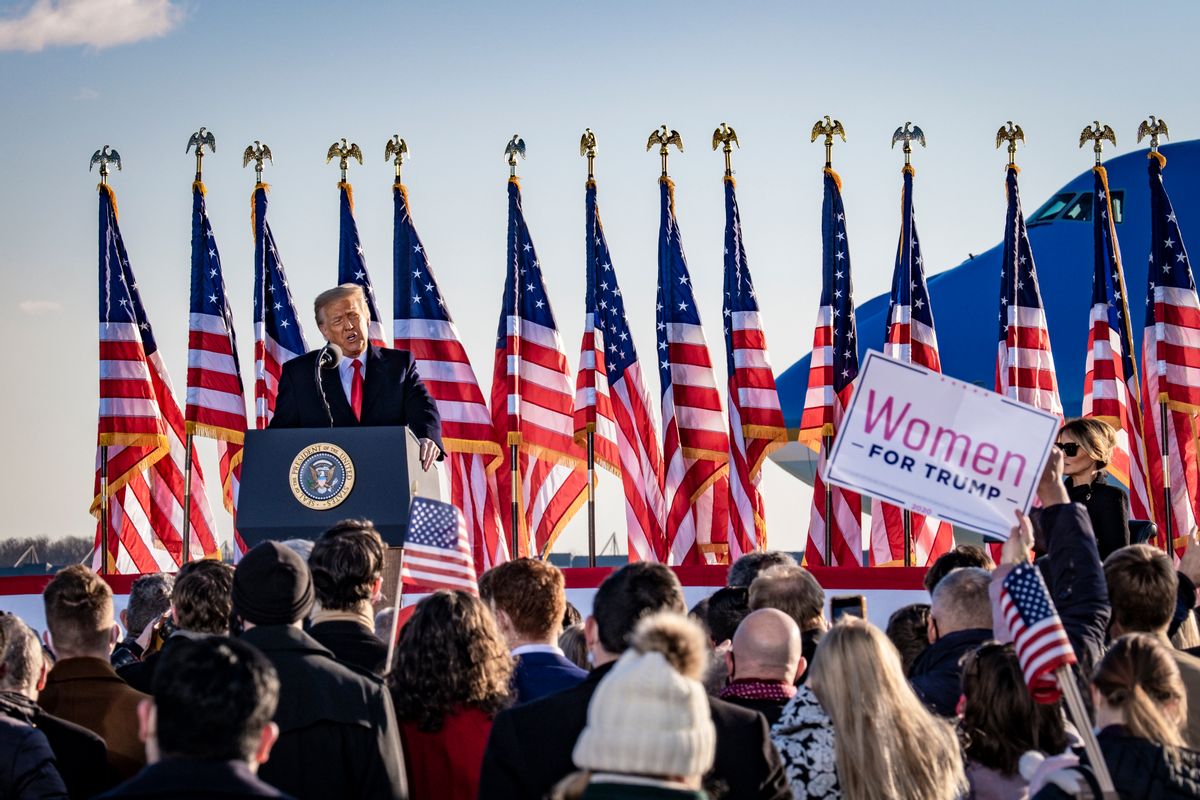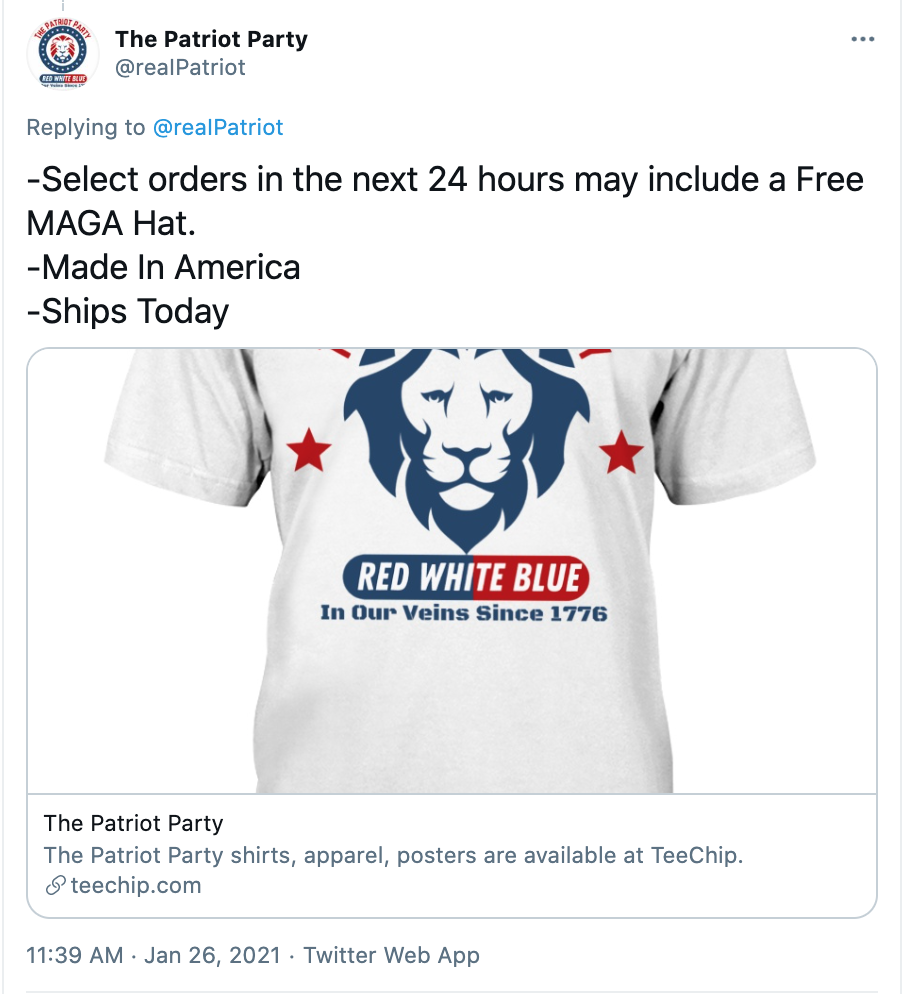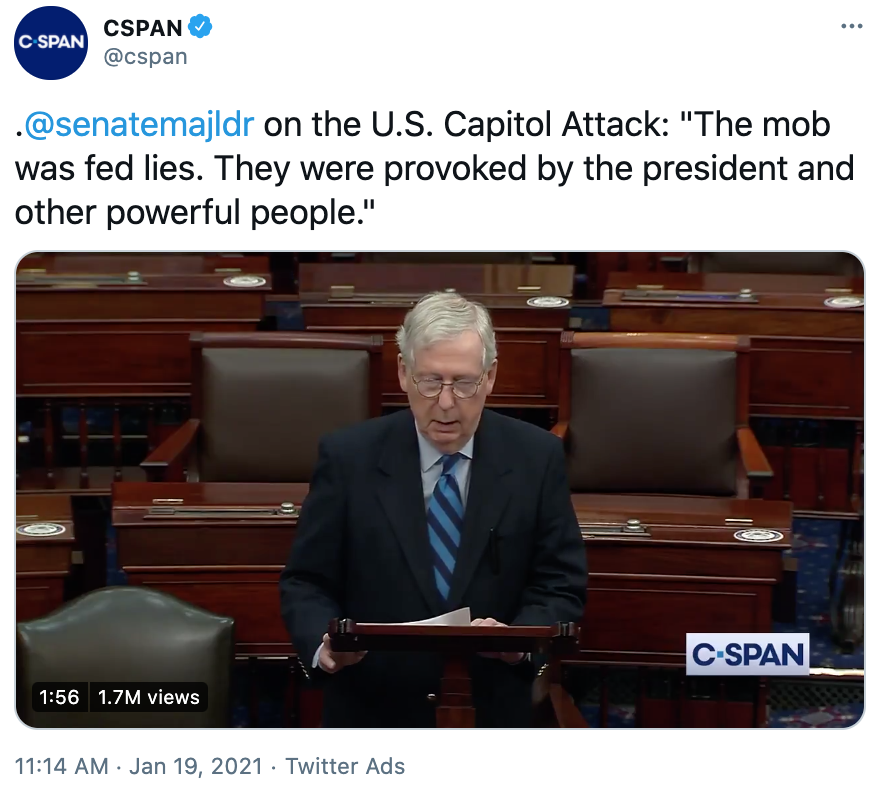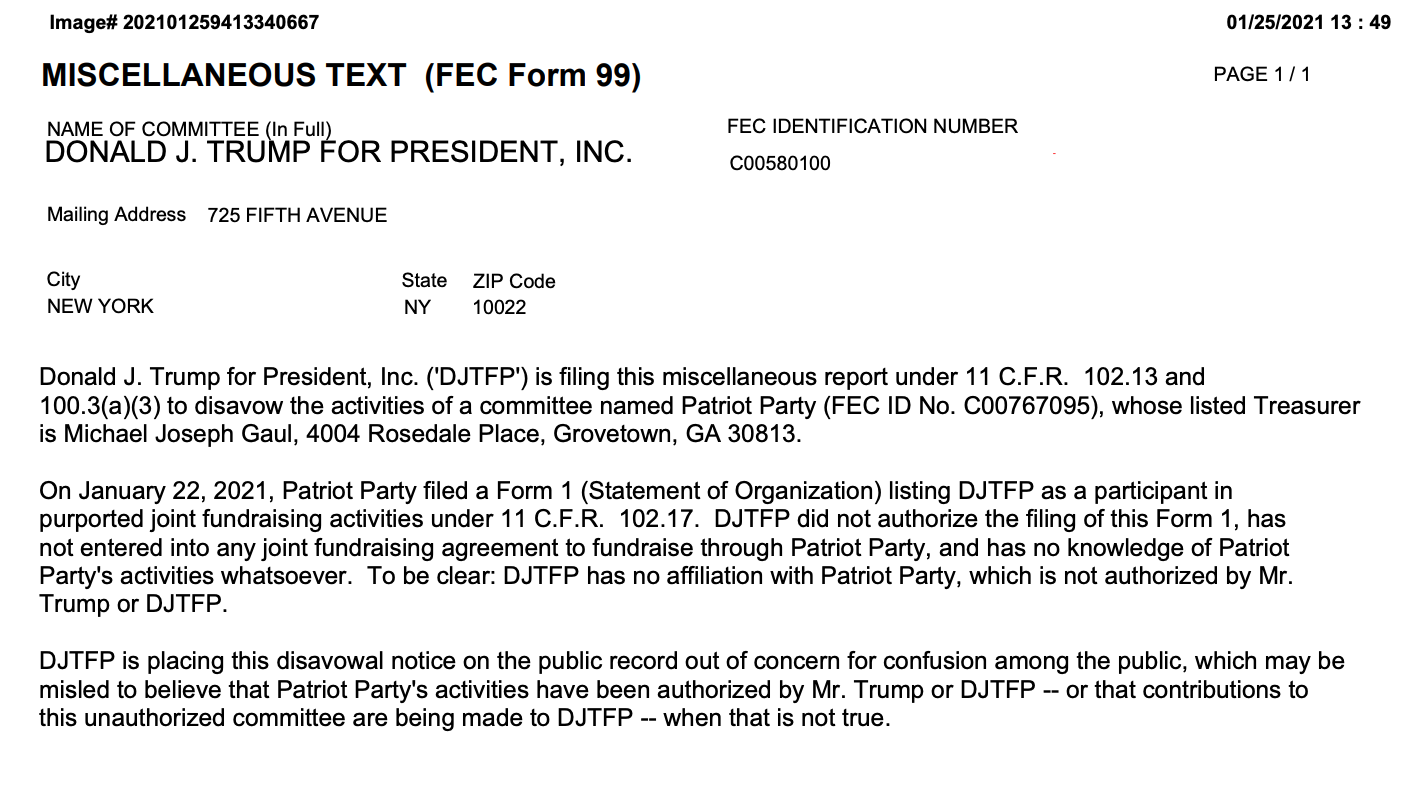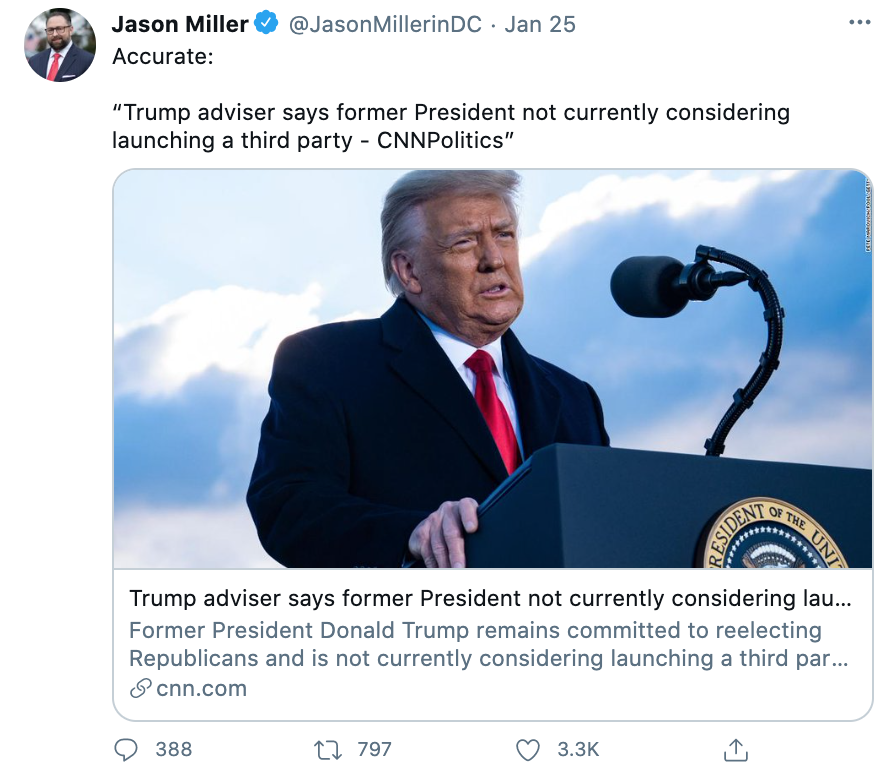On Jan. 19, 2021, the day before U.S. President Joe Biden's inauguration, The Wall Street Journal (WSJ) reported that his Republican predecessor, Donald Trump, had floated the idea of forming a new American political party called the "Patriot Party."
The report, excerpted below, cited an unknown number of people within Trump's inner circle who told the news outlet he was considering creating an alternative to the Republican and Democratic parties to maintain relevancy after his presidency.
President Trump has talked in recent days with associates about forming a new political party, according to people familiar with the matter, an effort to exert continued influence after he leaves the White House.
Mr. Trump discussed the matter with several aides and other people close to him last week, the people said. The president said he would want to call the new party the “Patriot Party,” the people said.
Meanwhile, some Trump supporters were campaigning for the idea on social media sites including Parler, Facebook, Reddit, and Twitter. An account titled @realPatriot, for example, was selling "The Patriot Party" T-shirts and MAGA hats, and had amassed more than 123,000 Twitter followers as of this report.
One supporter — Michael Joseph Gaul of Georgia — went so far as to file paperwork with the Federal Election Commission (FEC) on Jan. 22 to establish a formal system for collecting campaign donations to supposedly help the Patriot Party take off, according to FEC documents and multiple reputable news outlets. We will explain more about that effort below.
We investigated whether, or to what extent, the former president was behind those third-party efforts and had indeed split from the Republican Party.
On the same day as the WSJ story, a New York Times story surfaced about several high-profile Republicans, including Senate Majority Leader Mitch McConnell, who condemned Trump for "provoking" a crowd of his supporters to storm the U.S. Capitol on Jan. 6 to try to halt a ceremonial vote affirming Biden's win.
The next day, rumors regarding Trump's post-presidency agenda accelerated. Before boarding a flight to Florida in lieu of participating in the inauguration ceremony for Biden and Vice President Kamala Harris, Trump told a crowd of supporters at Joint Base Andrews "we will be back in some form."
Hours after that, Republican Sen. Lindsey Graham commented on the rumors in a Fox News interview, where he said he hopes Trump does not form a new political party because the GOP needs him to secure a majority of seats in the Senate and House in future elections.
"The one way Democrats can survive is for the Republican Party to crack up," he said. "The best way for the Republican Party to crack up is to try to move forward without Donald Trump."
But here's important context: Multiple people credited with knowledge of private conversations with Trump told The Washington Post for a story on Jan. 23 that the third-party threat gave Trump leverage to prevent Republican senators from voting to convict him during his second impeachment trial, set to begin in February.
Questions regarding Trump's official involvement in an alleged third-party scheme were further answered by information that surfaced on Jan. 25.
Responding to Gaul's FEC filing — which listed the former president’s campaign committee, Donald J Trump for President (DJTFP), as a "joint fundraising representative" — DJTFP said it had "no affiliation with Patriot Party" and was not involved in the campaign fundraising effort.
"DJTFP is placing this disavowal notice on the public record out of concern for confusion among the public, which may be mislead to believe that Patriot Party's activities have been authorized by Mr Trump or DJTFP — or that contributions to this unauthorized committee are being made to DJTFP — when that is not true," the FEC notice read.
We reached out to the email address listed on Gaul's FEC filing to learn why, or under what circumstances exactly, he attempted to create the official group to collection donations under the Patriot Party name. We have not heard back, but we will update this report when, or if, that changes.
After that statement from Trump's official campaign, Jason Miller, who had served as a senior campaign adviser to Trump, confirmed that Trump was indeed committed to helping the Republican party — at least for now — in at least one media interview and on Twitter. CNN reported:
He said that the former President 'has made clear his goal is to win back the House and Senate for Republicans in 2022. There's nothing that's actively being planned regarding an effort outside of that.'
But, Miller maintained, 'it's completely up to Republican senators if this is something that becomes more serious" — a reference to Trump's upcoming Senate impeachment trial.
In sum, despite news reports citing anonymous sources close to Trump who said he floated the idea of establishing a new "Patriot Party," the official statement from his campaign disavowing an effort to solicit campaign donations under the name and Miller's comments prove that he had not established such an organization as of late January 2021.
